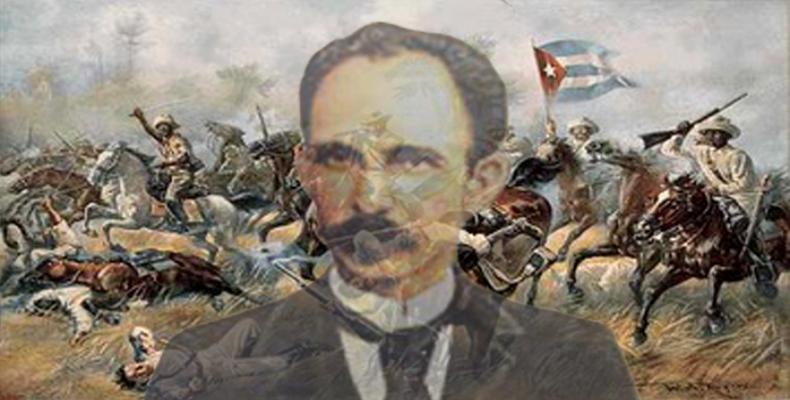Havana: During a carnival Sunday 126 years ago, Cuba claimed the cry for freedom and restarted the war against Spain in search of a country project that, according to experts, would arrive six decades later, Radio Habana Cuba publishes.
According to historical investigations, the Cuban patriot and conspirator Juan Gualberto Gómez communicated about the uprising to the architect of this third war, José Martí, through an encrypted message that only said: “transfers accepted.”
Historian Luis Fidel Acosta explained to Prensa Latina that after the deposition of arms by most of the Cuban troops after 10 years of struggle (1868-1878), there were several unsuccessful attempts to maintain the insurrectionary movement on the island.
José Martí, journalist, poet, politician and Cuban patriot, was responsible for unifying veterans and new generations around the independence movement from the emigration in the United States.
“’He founded the Cuban Revolutionary Party (PRC) that did not distinguish race, social sector or economic class among its affiliates; He prepared the conditions to restart the war and smoothed out the rough spots between the main military leaders such as Máximo Gómez and Antonio Maceo”, Acosta said.
Martí also advocated the founding of a just Republic with the humble and for the humble, and mainly for a new country with a revolutionary and transforming process of the social structure, emphasized the expert.
“Marti’s project was much more radical than the concept of independence, and it also involved the creation of a nation with a broad Latin American and anti-imperialist sense”, he argued.
According to Acosta, by the end of 1894 there were already conditions to resume the armed struggle and Martí had raised the need for simultaneous uprisings to occur throughout the country.
“This would be followed by the landing of the Lagonda, Amadís and Baracoa steamers with the main leaders and arms, three expeditions that were part of the Fernandina Plan, which could not materialize due to a denouncement”, he said.
Despite this failure, Martí decided not to delay the uprising in Cuba because Spain was already on warning and on the island the patriots wanted to start the war at once, he explained.
In addition to him, on January 29, 1895, Enrique Collazo, representative of the Revolutionary Junta of Havana, and Kpsé María “Mayía” Rodríguez, Máximo Gómez’s personal envoy, signed the uprising order.
According to historian Ernesto Limia, the uprisings occurred with greater intensity in the eastern region. “Only in the territory that today comprises the province of Granma, 16 pronouncements were consummated under the command of Major General Bartolomé Masó”, he said.
In Guantánamo, Colonel Pedro Agustín Pérez led a synchronous uprising that included nine rural neighborhoods and in Santiago de Cuba Major General Guillermón Moncada, suffering from tuberculosis, also kept his word to take up arms.
In the West the uprisings did not have the same impact, although some occurred in the Matanzas region, these were quickly put down by the Spanish forces.
‘On February 24, 1895, the tsunami foreseen by Martí did not reach the island; but again the cry of Independence or death! ‘, Limia wrote.
José Martí disembarked, together with Máximo Gómez, by Playita de Cajobabo on April 11 of that same year and on May 19 he died in combat.
“After his death, there is an internal process in the war of 95 of dissolution of the radical movement, he loses all that transforming charge of Marti and remains alone in the shell of a war of national liberation,” Acosta stressed.
In the historian’s opinion, the ideals of the Cuban Apostle were not recovered until six decades later with the triumph of the Cuban Revolution, on January 1, 1959.
‘The equitable society of which Martí spoke begins to be built from that moment, with everyone and for the good of all, when a preponderant place is given to those subordinate sectors that have been ignored from the economic and political point of view and social, ‘he said.
Acosta highlighted the Latin Americanist and anti-imperialist character of the country that was born in 1959.
“A revolution that seeks to defend and grant the highest quotas of social justice for the poor and for those who need it, therefore rescues and makes clear that Martian ideal,” he said.

